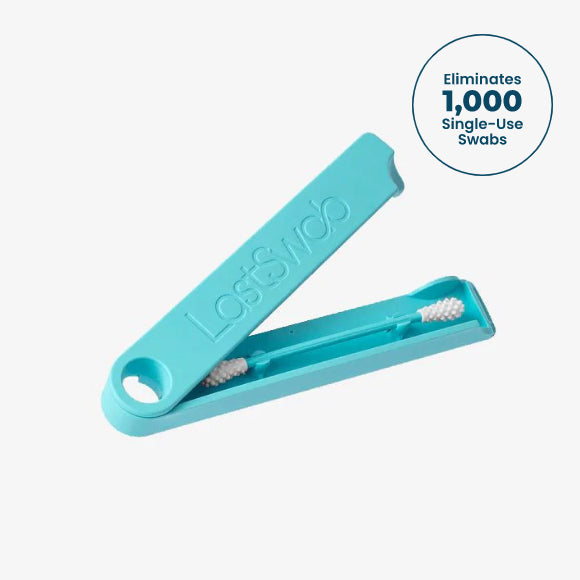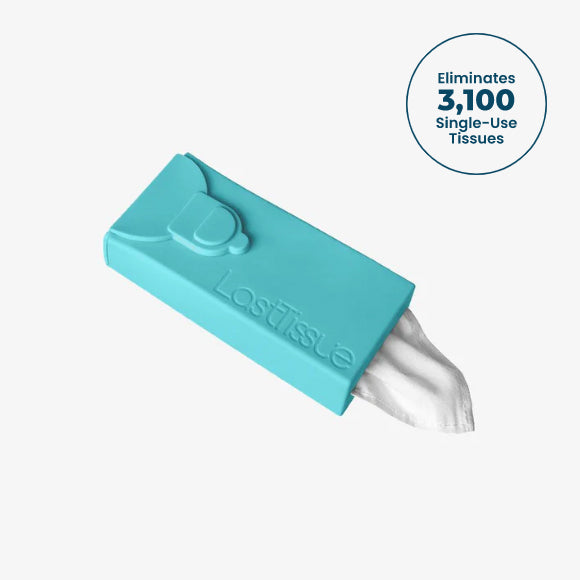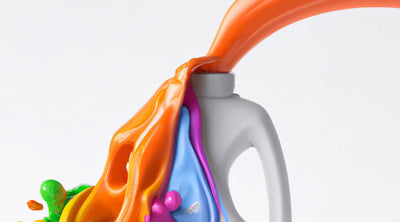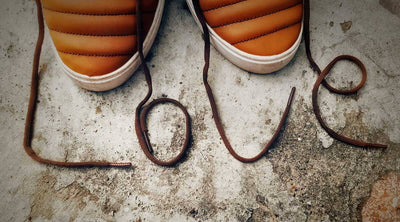Sustainability 101
What Sustainable Habits To Adopt & How To Stick To Them
December 02, 2021
You’ve likely heard about the importance of adopting more sustainable habits because of the significant benefits this brings the planet but you also know that lifestyle changes can be difficult. To successfully make the transition, you need to implement rules and keep working at your new habits repeatedly, which is no mean feat. For that reason, we’ve put together some useful guidance that will help you take huge strides towards a more sustainable lifestyle.
Behavioral scientists who study habit formation say that many people try to create healthy habits the wrong way. Here are a few tips that can help you create new habits in the right way.
The same applies when it comes to forming sustainable habits.

General Tips On How To Form Habits
Habits are usually connected to the notion of bad habits, but this isn’t always the case. Habits are those actions — good, bad, or otherwise — that form our normal routine. This includes things like brushing your teeth before heading to bed or drinking a morning coffee as soon as you wake up. But it begs the question; if it’s so easy to pick up such habits, why is it so hard to form new healthy habits?Behavioral scientists who study habit formation say that many people try to create healthy habits the wrong way. Here are a few tips that can help you create new habits in the right way.
Start Small & Keep It Simple
They say that Rome wasn’t built in a day, and this applies to all things. Trying to change your whole life immediately will be overwhelming and only serves to hinder any long-term adjustment. Instead, start small and be consistent to experience the best results.Do It Every Day
Did you know that habits form faster the more often you do them? Repeating the same process over and over is not only more efficient but also a better way to make a real lifestyle change. Just remember, slow and steady is the way to go. For example, if your new year’s resolution is to start hitting the gym for an hour, five times a week when you’ve never been before, that could be too big a shock to the system, which likely means you won’t stick to the new habit in the long run. But if you start off with a few quick daily exercises and build up over time, it becomes easier to stick to your fitness regimen and even increase intensity over the long-term.The same applies when it comes to forming sustainable habits.
Reward Yourself
Self-reward is a great way to keep yourself motivated about maintaining the new habits you’re developing. Once you’ve repeated a specific habit for a week or fortnight give yourself a little pat on the back with small gifts that will help to keep you going until the next milestone.
What New Habits Should We Form?
Now that you know how to form new habits, here are some examples of the habits you can adopt to lead a more sustainable life.Go Non-Toxic At Home
Your indoor environment is just as important as the outdoor environment, so it’s important to avoid toxicity in the home too. This can be done by using less-toxic cleaning products, fragrances, candles, and body care.Save Water
A shower can be a great way to unwind after a long day but enjoying it for too long wastes a lot of water — and a lot of your time too! Shortening things like your shower time and laundry wash cycles speeds up the process of becoming more sustainable.Go Green With Your Energy Usage
Small changes that won’t impact your normal routine in any way like using energy saving lamps instead of regular ones will cut your energy usage in half and go a long way towards sustainable living. Renewable energy will have a positive effect on your carbon footprint too.Eat Healthy & Avoid Food In Packaging
Eating a healthy balanced diet is great for your body. But if you can, slightly reduce your meat consumption. The meat sector accounts for nearly 60% of all food production greenhouse gases. Also try to shop for organic food from farmer’s markets where possible and also buy in bulk to minimize pollution caused by excess packaging.Use Biodegradable Trash Bags
According to the EPA, the average person in the U.S. produced about 4.9 pounds of trash per day in 2018. A combination of reducing your trash output and using biodegradable bags for any waste that you do generate is a good way to be more eco-friendly.Buy Second-Hand
Fast fashion is detrimental to the environment. The mass production of clothing, which is often purchased with one event in mind and then discarded rather than being sent to charity shops or repurposed into something else, creates significant waste. Buying second-hand from time to time can land you some really high-quality garments that are half the price and have twice the history.Cut Down The Car Usage
Imagine how much busier and more polluted the world would be if everyone who uses public transport used their own vehicle instead. Scary right? If possible, ride the bus, catch a train, get on your bicycle, or simply walk to improve the planet’s wellbeing.Less Waste, More Recycling & Composting
Reducing waste and recycling properly are great ways to ease the pressure on landfills and the planet as a whole. Composting on top of this delivers even more benefits, especially for plant life and wildlife.Travel Sustainably
While traveling can’t entirely be zero waste, there are steps you can take to ensure that you are being as environmentally aware as possible. Choosing locally owned hotels and organic restaurants are some examples. Another good practice is to pack light when travelling by plane. Doing so makes a huge difference to CO2 emissions.Join Local Communities
Getting encouragement from others can be a great source of motivation. There are groups and clubs in most communities that promote and educate the importance of sustainable habits. Just ensure you do your research first to check the legitimacy and values of each group before joining. The support system will help you stick with new habits and make new friends with similar interests too.Small Changes To Your Habits Can Make A Big Impact On The World
There you have it! With better insight into how you can form better habits including simple examples of things you can start doing at home, you’re now well-equipped to make sustainable changes. Not only will it improve your own wellbeing both in the short and long-term but it will also create a better world for generations to come.MORE Sustainability 101 ARTICLES View all ›
Ready to make
the switch?
- Powerful Cleaning
- Dissolves Easily
- Skin-Friendly
- Eco-Friendly
- No Mess














